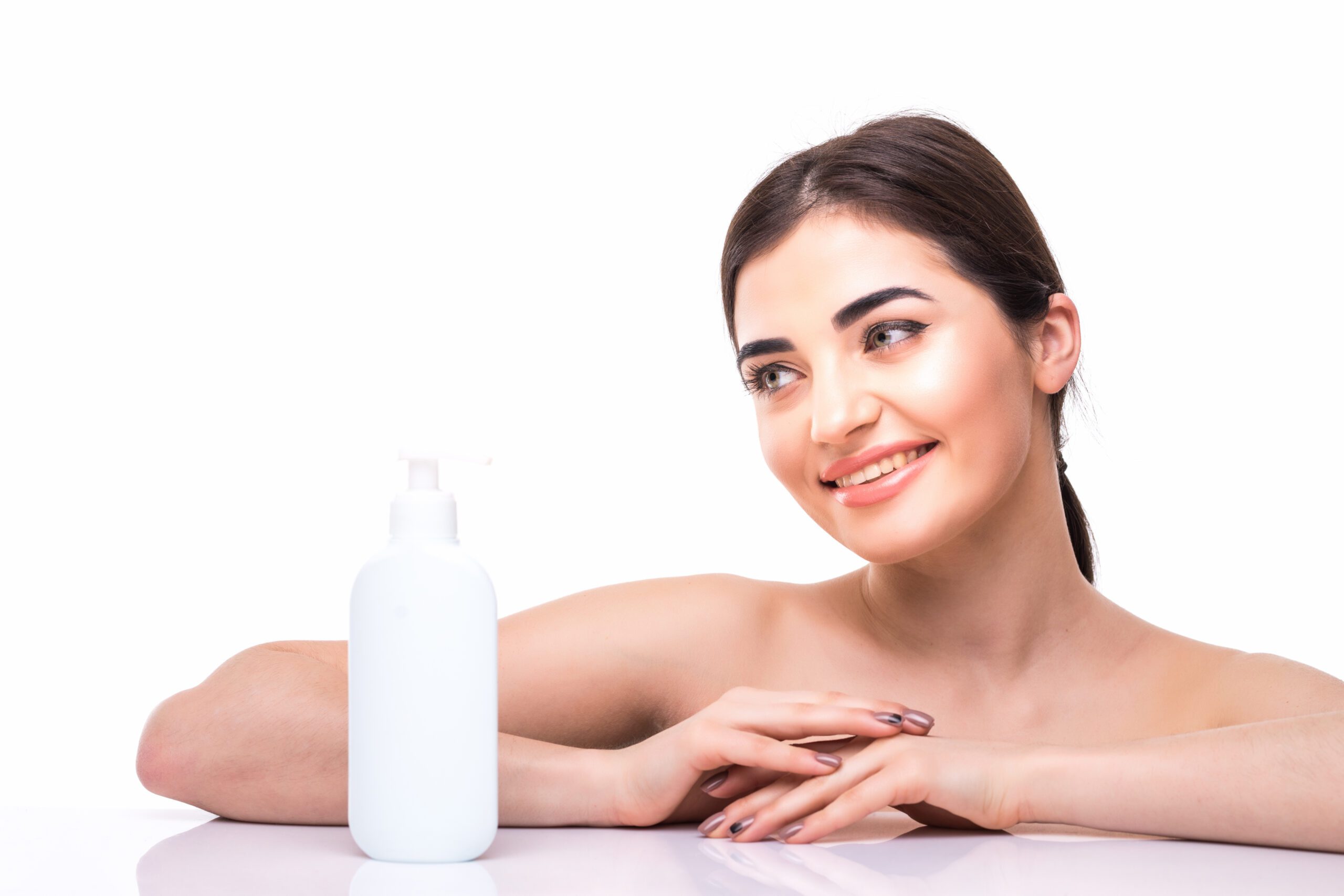Skincare for sensitive skin could become like a continuous battle, if we choose the wrong product. It could leave us with irritation, redness or skin, a breakout or worse. People with sensitive skin are well aware of how delicate their skin is and how careful they need to be with the use of products on a daily basis.
We will guide you with some best practices of skincare routine along with expert advice from dermatologists.
What is Sensitive Skin?
Sensitive skin easily reacts to any external factors such as; skincare products, weather change, pollution or dust. People may experience redness, itching,burning sensation, and dryness. Which makes it difficult to find a suitable product for their skin.
Common Signs of Sensitive Skin
Have you ever experienced a burning, stinging feeling while applying skincare products? Following are some common signs of sensitive skin.
- Redness of skin
- Dryness and peel
- Stinging or burning sensations
- Outbreak from new products
- Tightness or discomfort, especially after cleansing
Causes of Sensitive Skin
Genetic Factors
Genetics play a crucial role in determining our skin type. If our parents or siblings have sensitive skin, you may also have it.
Environmental Triggers
Sensitive skin could be damaged by pollution, harsh wind, and intense temperatures. Seasonal change worsen the symptoms of sensitive skin.
Lifestyle and Diet
Our diet and lifestyle choices can also have an impact on our skin. Excess use of caffeine, spicy foods or stress can be triggers to increase the sensitivity of the skin.
How to Do Skincare for Sensitive Skin
Sensitive skin demands special care, with a focus on gentleness and balance. People with sensitive skin need to protect the natural barrier of the skin without any irritation. Following skincare for sensitive skin is outlined after expert advice that mentions the ingredients that are ideal, as well as those you should avoid.
1. Cleansing for Sensitive Skin
Cleansing is a must-to-do step in every skincare routine. Although we need a gentle, non-foaming cleanser without stripping away natural oils, as sensitive skin is prone to irritation.
Ingredients to Use
| Glycerin | It is a moisture attracting agent for the skin. Glycerin is very gentle and it preserves hydration into |
| Aloe Vera | comfort and calms the skin. It also reduces redness and irritation. |
| Coconut-derived surfactants | These mild cleansers help remove dirt and oil without causing harm to the skin barrier. |
Ingredients to Avoid:
| Sodium Lauryl Sulfate (SLS) | This foaming agent can remove all the covering from the skin and lead to dryness and irritation. |
| Fragrances | Both natural and chemical made fragrances can cause irritation and should be avoided. |
2. Toning for Sensitive Skin
Toners are used to rebalance the skin after cleansing. It also prepares our skin for moisturizing. Pick alcohol-free, hydrating toners to avoid further irritation.
Ingredients to Use:
| Chamomile | This is a calming, anti-inflammatory ingredient that helps soothe sensitive skin. |
| Cucumber Extract | It is refreshing and hydrating for the sensitive skin, cucumber extract cools down the skin. |
| Rose Water | Known for its soothing properties, that can help reduce redness. |
Ingredients to Avoid:
| Alcohol | Check if your toner contains alcohol because this can be highly drying and irritating for skin. |
3. Moisturizing for Sensitive Skin
Moisturizers are known for locking hydration and strengthening the skin’s barrier. You can benefit from rich, soothing moisturizers with hydrating and reparative ingredients.
Ingredients to Use:
Ceramides: Are lipids that help rebuild the skin barrier, improve moisture level and reduce sensitivity.
Hyaluronic Acid: Is proven to be a powerful ingredient to draw moisture into the skin and keep it hydrated.
Squalane: Lightweight and formulated to not cause blocked pores. Squalane imitates our skin’s natural oils and locks in moisture.
Ingredients to Avoid:
Parabens: Preservatives like parabens can sometimes cause skin reactions and disrupt the skin barrier.
Essential Oils: Use wisely because they may seem like a natural choice. But essential oils can irritate skin, especially citrus and peppermint oil.
Sun Protection for Sensitive Skin
Sunscreen is an essential feature of skincare for sensitive skin routine. Sensitive skin in contact with the sun can worsen irritation and redness. Get mineral based sunscreens over chemical ones.
Ingredients to Use:
| Zinc Oxide | Gentle physical blocker that provides effective protection without harming or irritating the skin. It is effective against UVA and UVB rays which could help to reduce inflammation and redness. |
| Titanium Dioxide | Could be another good ingredient in skincare for sensitive skin. Because of its water resistant properties it works well on sensitive skin. |
Ingredients to Avoid:
| Oxybenzone and Avobenzone | These chemical sunscreen ingredients can compromise skin’s natural barrier, and cause reaction. It can degrade quickly, leading our skin to sun exposure. |
4. Exfoliation for skincare for Sensitive Skin
Exfoliating removes dead skin cells, unclog pores, enhances skin tone, and reduces the appearance of fine lines. Which makes it an important part of skincare for sensitive skin routine. Be mindful of pH level and choose gentle exfoliants.
Ingredients to Use:
Lactic Acid: Good choice for sensitive skin , because of its gentle nature. It is alpha-hydroxy acid (AHA) that gently removes dead skin. That saves skin from dryness by retaining moisture. It also reduces irritation and redness to the sensitive skin.
Polyhydroxy Acids (PHAs): PHAs are more gentle than AHAs and BHAs. They are less likely to cause burning or irritation. It has a soothing effect, hydrating properties and is perfect for rosacea prone skin by reducing redness of the skin.
Ingredients to Avoid:
Physical Scrubs: Like sugar scrubs, walnut shells, salt scrubs could cause micro tearing. That leads to irritation and redness to skin. Physical scrubs can push bacteria and dirt deep into skin causing acne.
High Concentration Acids: Avoid high acids like glycolic acid in high percentages, as they can cause irritation, inflammation, dryness, skin barrier disruption, and Post-inflammatory hyperpigmentation (PIH). Always do a patch test before using it on all over the skin. Use acid in combination with soothing ingredients and start with less concentration.
Dermatologist Opinion on Skincare for Sensitive Skin
Expert Recommendations for Daily Skincare
Dermatologists agree that people with sensitive skin should stick to a simple, gentle routine. Overloading the skin with too many products or ingredients can lead to more irritation. They often recommend sticking to fragrance-free, hypoallergenic products.
How to Handle Flare-ups and Irritations
During flare-ups, experts advise scaling back your routine to the basics: a gentle cleanser, a hydrating moisturizer, and a calming treatment, like aloe vera gel. Avoid exfoliating or using new products during these times.
Importance of Patch Testing
Patch testing is crucial when trying out new products. Apply a small amount of the product on your wrist or behind your ear and wait 24 hours to see if you have any adverse reactions.
Conclusion
Handling sensitive skin can be challenging, but it is possible to have healthy and irritation-free skin with right skincare for sensitive skin. Be mindful about keeping your routine simple, avoid harsh ingredients, and balance hydration level.
Proper care and attention to the sensitive skin can improve skin condition overtime, but it may never go away completely. Factors like environment and age can affect your skin’s sensitivity.
Yes, but choose makeup products that are designed for sensitive skin.
By using mineral-based sunscreens on a daily basis and avoiding rough environmental conditions like extreme cold, wind or pollution.



